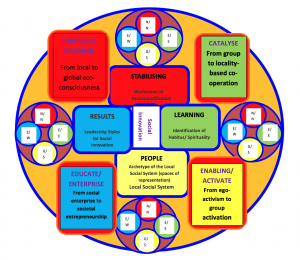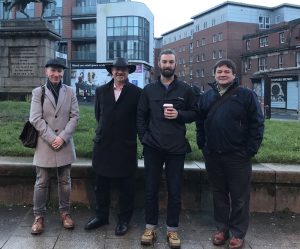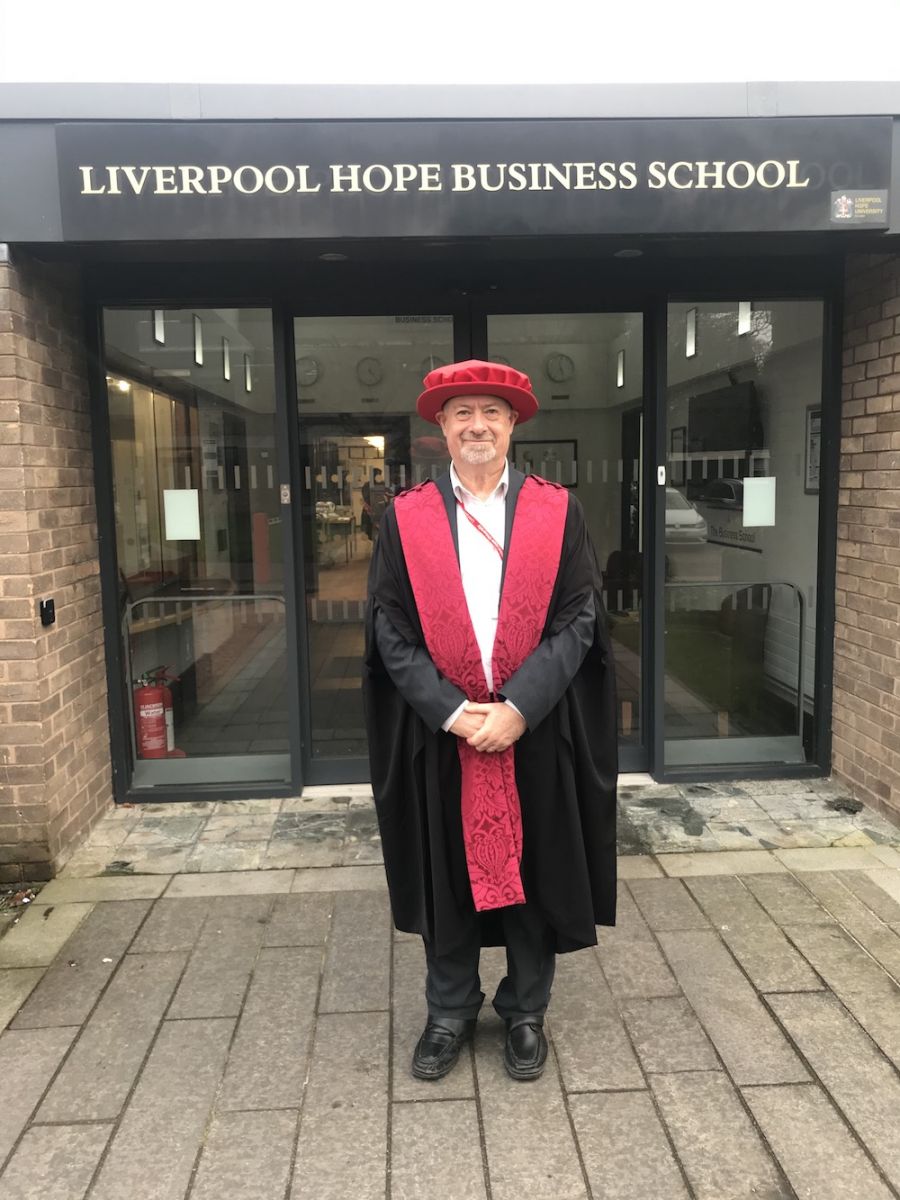PhD Graduation!: Tony Bradley’s Integral Research-to-Innovation on a Communiversity in Liverpool’s Arts & Culture Industry Sphere
For the Graduation Day, at Da Vinci Institute, Johannesburg, Professor Alexander Schieffer interviewed Rev Dr Tony Bradley, Centre Director, SEARCH and Lecturer in Sustainable Business at Liverpool Hope Business School, UK.
Alexander: Tony, congratulations to your remarkable thesis. We are proud of your achievement as a TRANS4M Fellow. Can you tell us what your thesis was about – in as accessible a way as possible?
Tony: Essentially, what I was seeking to investigate was an action research process for developing a Communiversity in the arts and cultural industry sphere. My theoretical basis was to use the Integral Four Worlds model as a way into creating a 16 steps process, towards developing a Communiversity. This is a newly-minted word (although there are many Communiversities around the world, with one of the first in my home city of Liverpool, UK) to describe the way in which the research academy of a University can be fused with the needs, values and enterprise of a local community, and vice versa.

At the same time, I wanted to see if it was possible to connect the Integral Worlds model to the 4 New Testament Gospels, in the Judaeo-Christian scriptures. They appear to parallel the sequence of the Integral Worlds-GENE model, as a way of generating the 16 steps process. As such, the Gospels were the basis for my technology.
The technological innovation – in line with the local community – was to produce a piece of creative art in collaboration with 70 other local creative people. My methodology was unusual, as an action research project. I wrote and Produced a new professional musical, based on the experience of Liverpool during the 2WW Blitz, which was performed in one of Liverpool’s main theatres in Nov-Dec 2016.
For the action research, I analysed this process and the reception of the show and its impact, which sent ripples into the community over many months. Action research is rather like dropping a pebble into a pond. Using the twin lenses of the integral model – and what I refer to as the Biblical Quaternity Archetype – we saw how an arts communiversity could be innovated and developed across a city-region. It was a complex process, but it pointed to some interesting steps for Communiversity development.
Alexander: So, what were the main findings to emerge from your action research?
Tony: Firstly, that there IS a homologous process between the BQA and the Integral model. This is reflected in the ripples that proceed from using each of the four New Testament Gospels as pebbles to drop into a community pond. The Lukan Gospel model parallels the process of grounding a journey with local People, to take them towards a crisis and then into a new world.
The Markan Gospel model parallels the process of emerging that journey’s Purpose, to enable the community to identify its core values, purposive beliefs and reasons for decision-making. The Johannine Gospel model parallels the process of using signs to help the community navigate its way towards a new future, building on its past, which is what emerged in the musical. Finally, the Matthean Gospel model indicates ways of effecting the realities of an artistic enterprise, with all the financial challenges that entails.
Alexander: That is interesting, but how has the Communiversity developed?
Tony: We had hoped to progress the arts communiversity through an organisation that I was Chair of Trustees for – one of the most innovative Arts Centres in the North of England. Then, along came the pandemic. So, the Communiversity took on a new shape – actually three shaped projects:
(1) involving my students and colleagues in The Good Business Festival International, based in Liverpool. This has led to a process of student consultation with local businesses in terms of sustainable development, for decarbonising production processes.
(2) Shortly after completing my doctorate in early 2020, I was appointed Centre Director of SEARCH (Social and Economic Action Research Centre at Hope). One of my first tasks was to change the meaning of SEARCH from ‘applied’ to ‘action research’. We, then, began a communiversity project, with a wide range of stakeholders, across the city-region, to work on the ‘greening of markets’ in Liverpool, particularly connected to developing a Circular Food Economy, working to close the loop between food waste and new ways of producing, marketing, distributing and consuming food products. This is an ongoing project, involving my University in a Knowledge Exchange Framework with regional stakeholders, through SEARCH.
(3) Most recently, SEARCH has managed to attract members of an Advisory Board, composed of leaders in the wealth management and political spheres across NW England. They have just begun an exciting new action research process for SEARCH, working between financial institutions and some of the most deprived communities in the UK, in inner city Liverpool. The aim is to frame an action research project for addressing inequality and multiple deprivation in the British equivalent of many shanty- townships in Africa, Asia and Latin America. People might be surprised to know that Britain continues to have a major problem with endemic poverty, which is worsening in the 21st century.

We are right at the start of this journey. It will involve co-operative inquiry and participative action research (PAR) with local people, so that they lead the research, alongside ourselves. But, with the team of 20-30 social scientists – in SEARCH – who will work on this project, we believe it will have an impact that ripples out far beyond the Liverpool city-region.
Alexander: How did the Da Vinci experience shape your doctorate?
Tony: Having to go through the TIPS process – in which I was not, always, a completely willing participant – opened my eyes to a completely different way of considering technologies, which is in line with the navigational aspects of the Integral Model. A technology is a way of getting you from your Purpose to your Profit, through Planetary systems. This helped me to create the Business Sustainability Cycle, on which I’m writing 3 books for Edward Elgar Publishing, on Business Sustainability. That has been a transformative process for which I will always be indebted to Da Vinci, and my brilliant Supervisors, Professors Ronnie Lessem and Alexander Schieffer, the original co-founders of TRANS4M – the partner-organisation of Da Vinci in this research program.
The entire communiversity of TRANS4M Academy for Integral Transformation congratulates Tony to this outstanding achievement!

